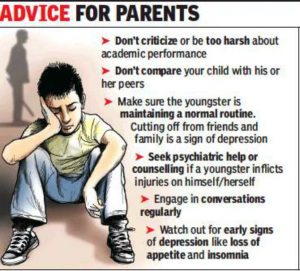Introduction
I can almost hear some readers thinking ‘my parents need to read this!’ This is a topic I believe a lot of us can relate to and I hope that after reading this piece we can let go of any hurt we may harbour towards our parents/guardians and do better for our children and wards.
 As parents/guardians, it is not unreasonable to expect excellent academic performance from your children/wards whether they attend high-ranking schools or not. A healthy amount of ‘pressure’ is required sometimes to help them be their best. It becomes a problem however, when this comes at a high cost to their emotional and physical wellbeing.
As parents/guardians, it is not unreasonable to expect excellent academic performance from your children/wards whether they attend high-ranking schools or not. A healthy amount of ‘pressure’ is required sometimes to help them be their best. It becomes a problem however, when this comes at a high cost to their emotional and physical wellbeing.
Effect on Self Perception
When a child is trained to associate their self worth with achievement, it fosters anxiety and depression due to the constant need to outperform and outshine their peers. Depression is also more likely to be seen when there is failure. Unreasonably high expectations from parents will interfere with a child’s identity formation and self-perception; it can also lead to performance anxiety and even cause suicidal thoughts in children as young as 8 years old.
Influence on Emotional Intelligence
 Laying so much emphasis on academic performance, these parents tend to forget or minimize the importance of intra/interpersonal skills, compassion, conflict resolution, etc. So even when children of such parents get the expected grades, they may be emotionally and socially maladjusted. Besides, children of parents who emphasize emotional intelligence tend to have high grades anyway.
Laying so much emphasis on academic performance, these parents tend to forget or minimize the importance of intra/interpersonal skills, compassion, conflict resolution, etc. So even when children of such parents get the expected grades, they may be emotionally and socially maladjusted. Besides, children of parents who emphasize emotional intelligence tend to have high grades anyway.
Fear and Worry
A performance reliant child is constantly in a place of competition and constantly worries over the next achievement. This constant worry and fear of not being the best may lead even the best of children into bad behaviour. They will attempt to get the best grades by any means possible, including cheating, stealing, and drugs, to get the approval of their parents.
What should you do?.
What does success mean to you? Do you expect it to mean the same thing to your child? Remember your child is a whole individual by themselves, permit them to live. As much as possible avoid non-constructive criticism, when your child fails (which is a normal part of life), help them understand that they themselves are not a failure. Help them understand what went wrong and what they can do to get the desired results. Shame is often accompanied with failure, so nurture a trusting relationship with your child, it will help them communicate their emotions and relieve anxiety in those situations.
 Knowledge is important, so teach them to enjoy the learning process especially in areas they enjoy. Explore their areas of interests and support them. No child deserves to be fearful and anxious about going to school, taking examinations or getting graded, because of unhealthy parental expectations. The ‘you either win or you win’ attitude of parents will only backfire in the long run.
Knowledge is important, so teach them to enjoy the learning process especially in areas they enjoy. Explore their areas of interests and support them. No child deserves to be fearful and anxious about going to school, taking examinations or getting graded, because of unhealthy parental expectations. The ‘you either win or you win’ attitude of parents will only backfire in the long run.
Conclusion
Lofty parental expectations are also seen with extracurricular activities such as sports, music, etc. Parents may insist on activities their children should be involved in for various reasons, including societal perception. So, in addition to anxiety from being under constant pressure to perform, children may also ignore pain; downplay injuries and ill-health so they can continue to participate. They are also more likely to cheat or refuse to participate in activities where they are less likely to be the best.
So, dear parents and guardians, make room for your children to explore their interests. Set aside your own unfulfilled dreams and unmet expectations and permit your child to live. Make room for them to be seen and heard, this way they would be less likely to feel like they have disappointed you even if they fail.
Does your child’s performance mean so much to you because you want the best for them of because you want to live that stage of your own life through them?

Dr Omowunmi H. Thanni is a physician with a medical degree from Olabisi Onabanjo University Ago-Iwoye (Mb.ChB. Ogun). She is an Infant and Childhood Mental Health enthusiast who is passionate about supporting children with mental health concerns.
She is also an Early Childcare practitioner with experience observing children dealing with grief, the various psychosocial presentations, and the impact on their families. She is also a Child and Family Volunteer who serves as a healthy support system for children and families who have experienced the loss of one or both parents to terminal illnesses.
She is devoted to debunking cultural myths surrounding childhood mental health and enlightening the community on proper prevention and intervention strategies.

